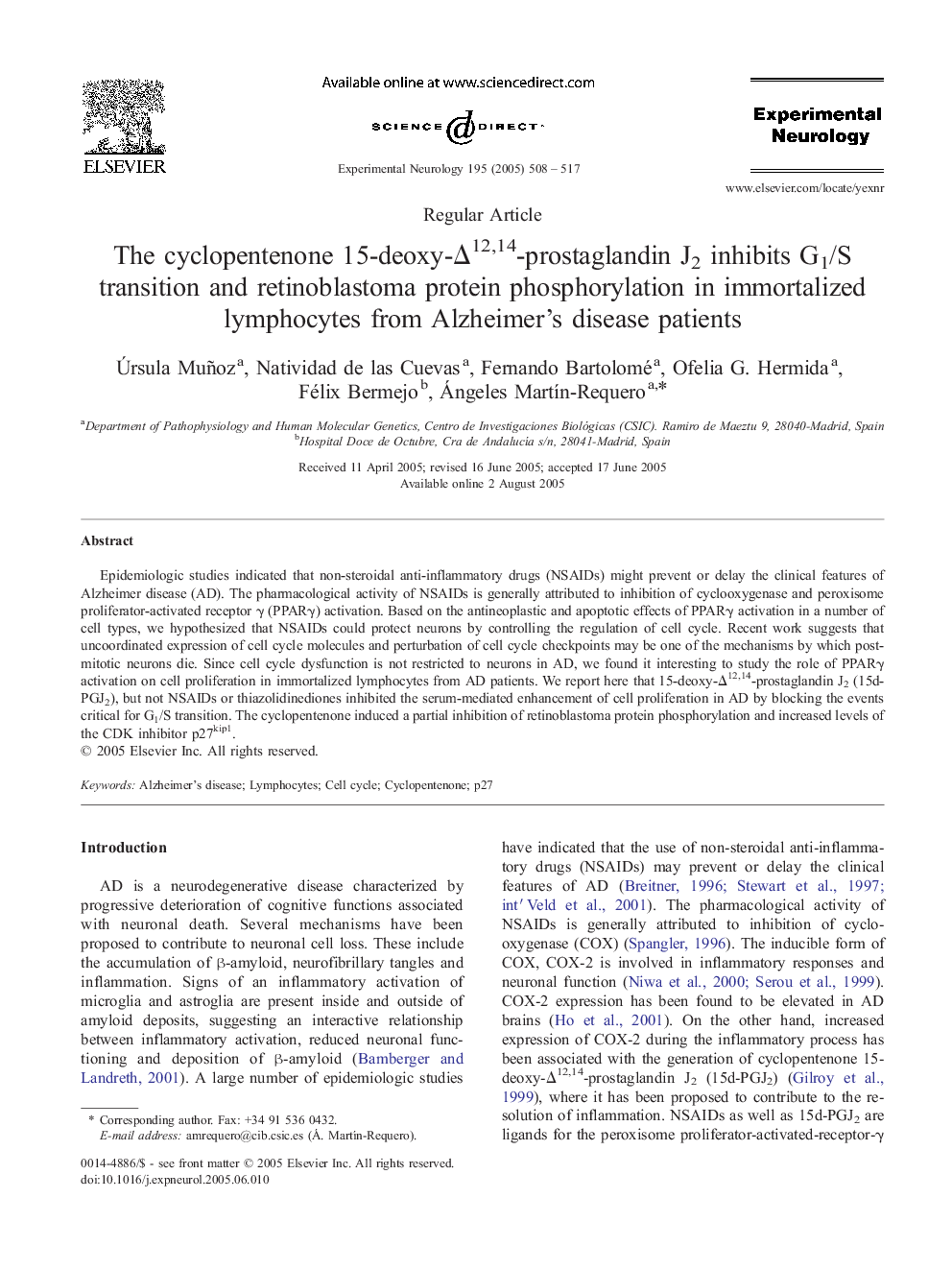| کد مقاله | کد نشریه | سال انتشار | مقاله انگلیسی | نسخه تمام متن |
|---|---|---|---|---|
| 9191950 | 1186607 | 2005 | 10 صفحه PDF | دانلود رایگان |
عنوان انگلیسی مقاله ISI
The cyclopentenone 15-deoxy-Î12,14-prostaglandin J2 inhibits G1/S transition and retinoblastoma protein phosphorylation in immortalized lymphocytes from Alzheimer's disease patients
دانلود مقاله + سفارش ترجمه
دانلود مقاله ISI انگلیسی
رایگان برای ایرانیان
کلمات کلیدی
موضوعات مرتبط
علوم زیستی و بیوفناوری
علم عصب شناسی
عصب شناسی
پیش نمایش صفحه اول مقاله

چکیده انگلیسی
Epidemiologic studies indicated that non-steroidal anti-inflammatory drugs (NSAIDs) might prevent or delay the clinical features of Alzheimer disease (AD). The pharmacological activity of NSAIDs is generally attributed to inhibition of cyclooxygenase and peroxisome proliferator-activated receptor γ (PPARγ) activation. Based on the antineoplastic and apoptotic effects of PPARγ activation in a number of cell types, we hypothesized that NSAIDs could protect neurons by controlling the regulation of cell cycle. Recent work suggests that uncoordinated expression of cell cycle molecules and perturbation of cell cycle checkpoints may be one of the mechanisms by which post-mitotic neurons die. Since cell cycle dysfunction is not restricted to neurons in AD, we found it interesting to study the role of PPARγ activation on cell proliferation in immortalized lymphocytes from AD patients. We report here that 15-deoxy-Î12,14-prostaglandin J2 (15d-PGJ2), but not NSAIDs or thiazolidinediones inhibited the serum-mediated enhancement of cell proliferation in AD by blocking the events critical for G1/S transition. The cyclopentenone induced a partial inhibition of retinoblastoma protein phosphorylation and increased levels of the CDK inhibitor p27kip1.
ناشر
Database: Elsevier - ScienceDirect (ساینس دایرکت)
Journal: Experimental Neurology - Volume 195, Issue 2, October 2005, Pages 508-517
Journal: Experimental Neurology - Volume 195, Issue 2, October 2005, Pages 508-517
نویسندگان
Ãrsula Muñoz, Natividad de las Cuevas, Fernando Bartolomé, Ofelia G. Hermida, Félix Bermejo, Ángeles MartÃn-Requero,